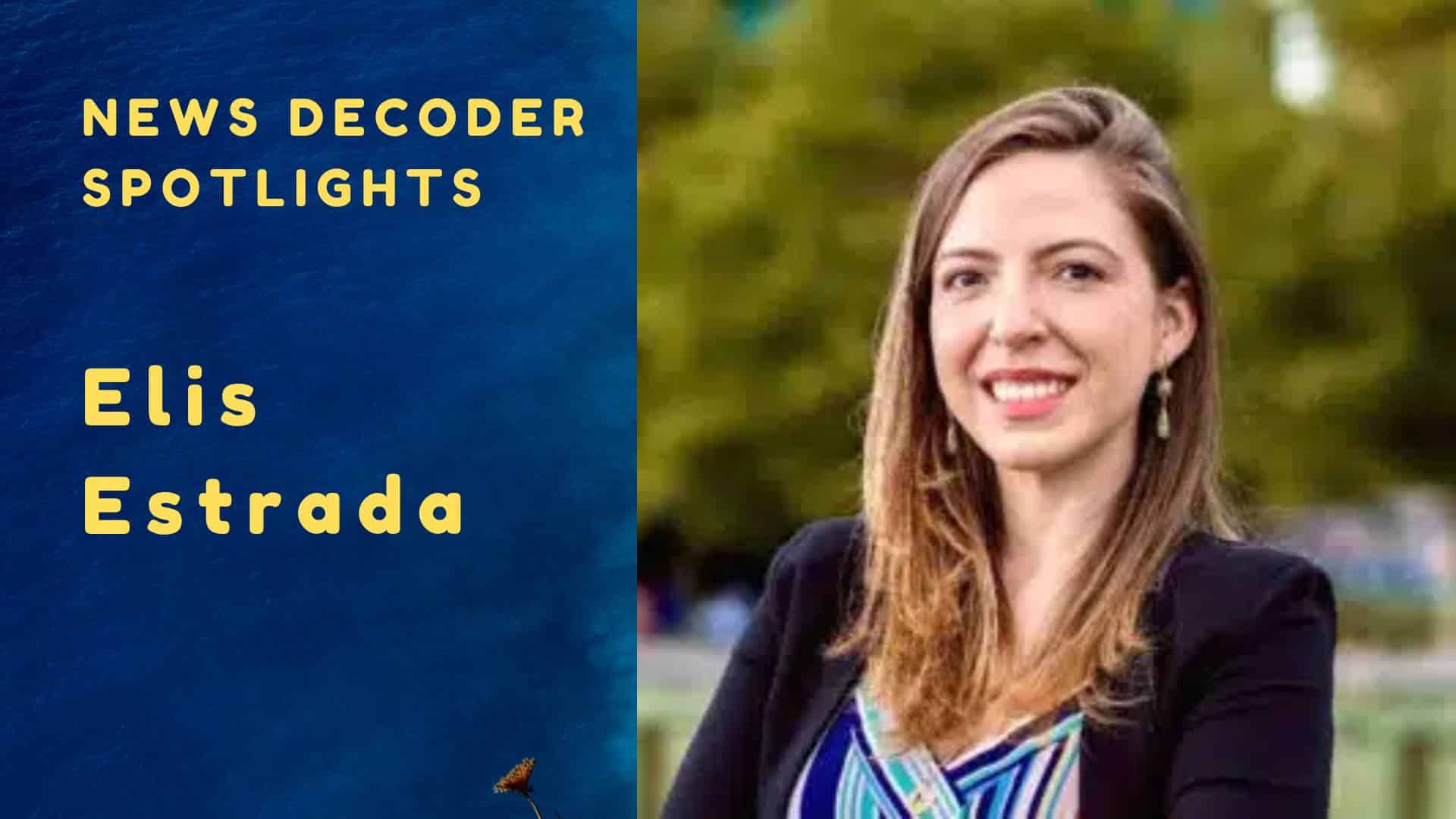One of News Decoder’s new board members has made it her mission to help young people navigate the media landscape to better understand the world they live in.

Elis Estrada, new addition to the Nouvelles-Découvertes board.
Elis Estrada grew up watching local news on television. Every day the news anchors would come on, telling her what was going on in the world around her.
“I think there was that curiosity to understand how it all worked,” Estrada said. “And to also learn how to tell other peoples’ stories. I think it was that curiosity and interest that led me to journalism.”
She got her start in journalism working at a local station. She now directs operations for PBS Digital Studios, a division of the nonprofit Public Broadcasting Service in the United States that produces and distributes educational videos.
Estrada is one of the latest additions to the board of Nouvelles-Découvertes, the nonprofit that oversees News Decoder. She arrived with a career-long mission to foster media literacy in the next ranks of students.
Even so early in her tenure on the board, Estrada has taken an active role in News Decoder. In April, she served as one of three judges for News Decoder’s twice-yearly storytelling contest.
“Elis’ involvement was so helpful,” said Marcy Burstiner, News Decoder educational news director, who oversees the contest. “She didn’t just rank the stories. She took the time to give insightful feedback to each of the student journalists who entered. She doesn’t just pay lip service. She takes an active role.”
Navigating a media world
Estrada wants to teach young people how to tell stories and to understand the ever-evolving world of media.
“Traditionally, a lot of young people — at least from what I have heard — think of news as some old institution,” Estrada said. “I think that there needs to be more efforts to break that stigma, and help news organizations connect better with young people, hear their ideas, hear their stories and create different pathways for young people to engage and ultimately to work in the news.”
Estrada sees the need for media literacy education precisely because, as a girl, she didn’t have experiences like the ones News Decoder provides.
“It was that lack of understanding what news really was, and how all the information around me impacts me,” Estrada said. “Not just news, but advertisements and social media and everything that we see on screen.”
After earning her bachelor’s degree at Marymount Manhattan College in New York City, Estrada dedicated herself to providing those experiences for students early in their education.
“It can be really inspiring to know how to tell stories and how to tell other peoples’ stories,” Estrada said.
The junction of journalism and education
Estrada’s work in journalism-based nonprofits has stretched throughout her career. The common denominator through a myriad of jobs has been impact.
“We really want to focus on the impact we can make with the content that we’re able to provide, and that I think will always help us to stand out from the rest,” Estrada said of PBS, where she started out as part of its PBS NewsHour Student Reporting Labs.
“Even if our reach may not always be that big,” she said, “ it’s still so important to have public media as part of our ecosystem.”
Christian Henry, president of the Nouvelles-Découvertes board, said that Estrada brings a wealth of industry experience to conversations about how News Decoder makes an impact.
“Because her career focus is on educational journalism programming for youth, her expertise is unusually suited to helping us foster conversations with our main audiences and know what is important to them,” Henry said. “Her perspective is important to helping us stay aware of the marketplace landscape, evolve our offerings and capture opportunities.”
Connecting information and media
Lately, Estrada has seen her role as bridging a gap between younger and older PBS viewers. Having a target audience of 18 to 45, Estrada has strived to create original programming attractive to the newest subset of news consumers in the country.
Her favorite show on PBS? “A People’s History of Native America,” which depicts the untold stories of different Indigenous cultures. “We have a mission to not just reach all Americans, but also serve Americans with content that inspires and that educates, and that can transform the way people are thinking,” she said. In that way, she believes, PBS is different from the Netflixes and big broadcast companies.
Between 2015 and 2017 Estrada worked with the News Literacy Project of Washington, D.C., a nonprofit focused on news and media literacy education initiatives. That mission has followed Estrada to News Decoder.
“My entire career I have been at the intersection of journalism and education, and I just think it’s the skills you learn from programs like News Decoder that are so valuable not just for when you’re learning them as a young person, but for your entire life,” she said.
If Estrada could offer one piece of advice to young people, it would be to not only understand the news, but to connect to information and media, which has the potential to drastically affect a person’s life.
With so many different types of media sources, it’s harder to find trusted and verified sources of information, Estrada said. “You’re consuming information. Knowing that and using journalism to understand the world around you, kind of leading with that curiosity, it’s such a valuable skill!”

Kaja Andrić joined the News Decoder team as an intern in January 2024. She is a second-year Journalism student at New York University. She is also studying Romance Languages with a concentration in French and Italian. Andrić has written for both NYU’s Washington Square News and Cooper Squared publications. Previously, she was a correspondent for the Florida Weekly newspaper’s Palm Beach community chapter. In 2022, she was Florida Scholastic Press Association’s Writer of the Year.
